
Prize 2019
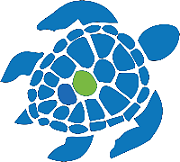 |
WOMEN: THE FORGOTTEN OCEAN ENTREPRENEURS |
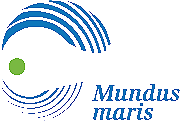 |
The topic of the essay "Women and Ocean" is quite intriguing and exciting, we can relate to it because of our experiences from childhood days. Let's share with you one of such experiences:
“I was raised in a community whose norms and values for women was to get married, have children and take care of their family and home. Thus any career path a woman chose was complementary for her to fulfill these obligations. Hence, when I chose to study marine geology in school, my close relatives strongly objected, even pressuring my parents to stop me from my course of study. When classes began, we were just two females, the rest of the class of 15 were males. I was determined not to allow pressure to conform to traditional gender roles to affect me emotionally and mentally, so I put in my best in my studies. During my undergraduate training, I was involved in research projects onboard a small research vessel called Plankton Fisher, a German research vessel donated through the Germany-Nigerian Bilateral Cooperation to the Institute of Oceanography, University of Calabar. At the end of my four-year course of studies, I graduated as the overall best student in my class.” - Joan
Her story is not an isolated one, over the years women have suffered biases, especially when it comes to professions linked to the ocean, be it in marine conservation, participation in ocean governance, industrial and small scale fisheries or aboard ships and vessels. Sailing, surfing and maritime navigation have been perceived as “masculine jobs”.
History shows that in the early 1940’s women were not allowed on research ships because they were no vacancies for them. They were actively discouraged from careers in science beyond nursing or home economics. However, women such as Elizabeth Mann Borgese made vital contributions in ocean governance and its role for international cooperation and peace building alliances. We also have Rachel Carson, an aquatic biologist and a well known marine conservationist who championed in the fight for control of toxic chemicals released into the ocean. Also Sylvia Earle, despite her professional achievements as a scientific diver, she was kept from joining an all male aquanauts team in 1960. Interestingly, she subsequently led an all female aquanauts team.
The role of women as “Ocean Healers” was recognized during the 23rd UN Climate Change Conference of the Parties (COP 23) in Bonn, Germany. It was acknowledged that when women are well represented in decision-making processes, their ability to share skills and knowledge strengthens the collective effort to face ocean-related challenges. On the other hand, failing to understand the behavior of women’s role in ocean resources has resulted in management strategies that do not work and are even counterproductive. Women often played invisible role in fisheries. In some societies, men “fish” while women stay at the home so they can continue with childcare and other domestic responsibilities. These “forgotten ocean entrepreneurs”, though hard working and unpaid, stay home to construct and mend fishing gears, collect baits, sort fishes and handle other logistics. Presently, the International Transport Workers Federation estimates that only 2% of the world’s maritime workforce is made up of women; one of the impediments obviously has been the concern for the safety of women onboard a ship filled with men.
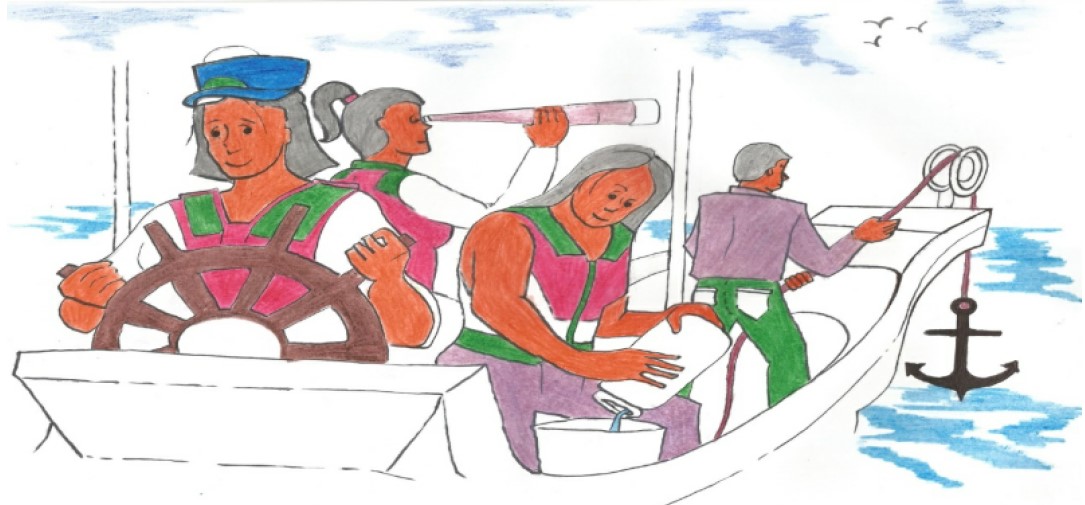
A woman ship captain with other female oceanographers onboard a research vessel.
We envision a time when we will have more female ship captains and onboard vessels/research ships, we will have more women than men (Figure 1). Women will be actively involved in public decisions about the ocean. In the fishing sector the role of women will be appreciated and recognized; rather than be the “invisible” workforce they will number among the “paid labour” and allowed to take on greater responsibilities. Gone will be the days when women will be ignored, abused or relegated to the background as insignificant, but they will have equal opportunities and privileges as the men folk.
Moving forward, there is need to remove the cultural barrier of a male-dominated ocean world for women to partake in governance of the oceans for the sake of achieving sustainability. Sustainable developments need leaders that devote a full time (100%) and women have a greater sense of commitment and a greater ability to multitask; hence their taking up leadership roles within this field can achieve long term prosperity. More and more women need to be educated in sea faring experience and training on safety and security sector such as Navies, Coast guards and Maritime authorities.
LUKESON, JOANNA, MIKE, TOBBY, VICTORIA, DAVID & ESSIEN, HELEN
Category: Intergeneration
UNIVERSITY OF CALABAR, CALABAR
Nigeria
 |
Une goutte d'eau dans l'océan |
 |
« Nous réalisons que ce que nous accomplissons n’est qu’une goutte dans l’océan. Mais si cette goutte n’existait pas dans l’océan, elle manquerait. »
Mère Térésa.
La planète terre est communément appelée la « planète bleue ». Composée à 70% d’eau, décomposée en océans et mers pour la plupart, c’est une ressource vitale qui assure la survie de nombreuses espèces, parmi lesquelles l’Homme. Devenue de par sa rareté (1) un enjeu majeur de développement, l’utilisation de la ressource aqueuse interpelle chacun dans sa vie quotidienne. En Afrique, la femme est au coeur de la gestion quotidienne des activités et devient de plus en plus un acteur central de développement. Aussi, penser l’océan à la lumière de la vie, du travail et du bonheur d’une femme revient à relier ces deux enjeux et à interroger le rôle de l’océan dans le processus d’autonomisation de la femme en Afrique, et au Cameroun en particulier. Pour ce faire, nous passerons en revue l’apport de l’océan dans la vie des femmes, d’abord en examinant les activités traditionnelles qu’elles impliquent (I) et ensuite, les utilisations modernes et les enjeux de développement qu’elles drainent (II).
I/ OCEAN ET TRADITION
L’Océan Atlantique joue un rôle majeur dans la vie culturelle et économique du Cameroun. Frontière naturelle située à l’Ouest du pays, il a influencé et influence encore fortement les pratiques et les rites, notamment dans les zones côtières. Sur le plan culturel notamment, il a inspiré de nombreuses croyances parmi lesquelles celle des « mami wata ». Divinité aquatique à laquelle on prête souvent une grande beauté et de grands pouvoirs; les « mami wata » ont joué un rôle prépondérant dans le développement du tourisme, notamment dans les régions du Sud (Kribi) et du Sud-Ouest (Limbé). Les femmes originaires des régions sus citées ont su capitaliser ce potentiel en transformant leur beauté en un capital économique. Par ailleurs, et dans la continuité des pratiques culturelles traditionnelles, la célébration du « ngondo », fête traditionnelle du peuple SAWA, est une cérémonie de communion du peuple avec les divinités de l’eau et les ancêtres. Véritable vitrine de la tradition du peuple SAWA, c’est aussi un véritable pôle économique qui draine chaque année de multiples investissements et génère par ailleurs de nombreuses ressources économiques. Les femmes sont également au coeur de cet évènement. Au-delà de l’attractivité qu’elles représentent, notamment à travers l’élection de « Miss Ngondo », ce sont également des entrepreneures actives qui détiennent de nombreux stands sur le site même du ngondo et arrivent à faire de cet évènement, un rendez-vous attendu chaque année.
Mais l’océan, c’est d’abord une source primaire de nourriture, d’oxygène et de médicaments. Les femmes ont su capitaliser cette ressource en la mettant au service de la communauté par des pratiques ancestrales de pêche et de cuisine. Chez les Pygmées (2) par exemple, la femme est en charge de la pêche et de la cueillette. Dans le domaine culinaire, les femmes ont maitrisé l’art de transformé les ressources accordées par l’océan en délices gustatifs. C’est le cas par exemple des braiseuses de poisson qui ont assis leur renommée et leur art sur le plan international, à tel point que ce mets est devenu une attraction nationale. Mais le rôle de l’océan dans la vie des femmes ne se résume pas seulement à ces utilisations traditionnelles.
II/ OCEAN ET INNOVATION
Les activités dites traditionnelles évoluent face à la pression de la modernité et notamment grâce à l’évolution technologique. Cette avancée se manifeste dans de nombreux domaines, notamment la pêche, qui se spécialise et se diversifie: pêche industrielle, pisciculture, aquaculture, etc… Autant d’activités génératrices de revenus et de pôles porteurs pour l’économie. Les femmes l’ont très vite compris et sont engagées dans le processus de changement, même si leur nombre est encore marginal. D’autre part, l’océan reste une attractivité pour les tourismes du monde entier. Aussi, les villes côtières et portuaires capitalisent elles ce potentiel en se transformant en de forts pôles touristiques, à l’instar de la ville de Kribi dans le Sud-Ouest du Cameroun dont la transformation est encore en cours mais qui ambitionne de devenir, plus qu’elle l’est déjà, une véritable attraction sur le plan touristique, maritime et financier des IDE (3). L’entreprenariat au féminin a su profiter de cette vague porteuse. En effet, on dénombre de plus en plus de femmes propriétaires terriennes ou encore promotrices d’hôtels. Par ailleurs, les femmes sont aussi le visage de l’océan, de par leur implication pour la préservation des ressources maritimes, leur participation à l’entretien des plages, mais aussi par l’intérêt qu’elles portent au secteur maritime en général. Lors de la célébration de la journée mondiale de l'océan en 2018, nous avons dû faire un triste constat du mauvais entretien des plages de Kribi (4). Face à cet état de fait, des appels aux âmes de bonne volonté ont été lancés pour procéder au nettoyage et lutter contre la pollution. Les femmes de la ville ont répondu massivement à cet appel. D’un autre côté, les métiers de la mer et de l’océan attirent chaque année une population féminine de plus en plus nombreuse. Même si au Cameroun de nombreux métiers comme l’océanographie sont encore quasi inexistants, les secteurs comme le transport maritime et le transit, la biologie marine ou encore l’ingénierie du traitement de l’eau sont des secteurs de plus en plus plébiscités par les jeunes camerounaises en quête de savoir et désireuses de participer au développement de leur pays.
En définitive, en examinant les différents apports de l’océan dans la vie des femmes, nous avons pu esquisser un portrait féminin de l’océan, dans le contexte particulier camerounais. Sur le plan traditionnel, l’océan est intimement lié aux moeurs et coutumes culturelles ancestrales des peuples côtiers. La croyance en des divinités et le respect des rites culturels ancestraux sont autant de pôles de participation dans lesquels s’investissent les femmes et auxquels elles parviennent à donner une nouvelle dimension en termes d’attractivité et de rayonnement. Cette logique reste vraie pour les activités porteuses d’innovation et de développement telles que la pêche et le tourisme dont elles arrivent à saisir toute l’implication économique et à s’imposer comme de véritables actrices du développement, tant au niveau micro que macro-économique. Cependant, l’on est forcé d’admettre qu’elles restent marginales dans la réalisation de toutes ces activités, telles une goutte d’eau dans l’océan. Mais leur impact est loin d’être négligeable car comme l’a dit Mère Téresa, « si cette goutte d’eau n’existait pas dans l’océan, elle manquerait ». Aussi l’enjeu aujourd’hui est d’accompagner ces initiatives et actions il faut le dire, déjà porteuses de résultat afin que cette volonté soit catalysées et que les gouttes d’eau puissent s’épanouir en vague déferlante.
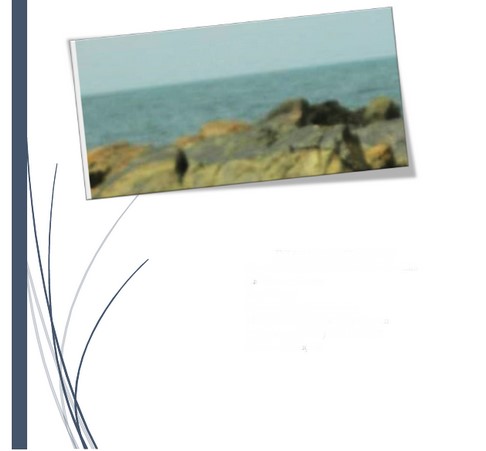
(1) L’eau dite douce à savoir propre à la consommation, constitue à peine 2,5% de la ressource aqueuse dont seulement 0,7% sont accessibles en surface.
(2) Les Pygmées sont un peuple minoritaire et assez marginal habitant généralement dans la forêt camerounaise. Ils sont répartis en trois groupes distincts à savoir les Bakas dans la zone de l’Est et du Sud, les Bakola dans la zone de l’Océan et les Medzam, dans la plaine Tikar.
(3) Investissements Directs Etrangers
(4) Selon ce constat, environ 95% des plages de la ville de Kribi sont mal entretenues
Koloko Toukam Karel Sandra
Catégorie : Jeunes
Age : 25 ans
Cameroun
 |
WOMEN |
 |
The ocean, the ocean
Everly bursting with energy
Forever pounding the shores how just like a woman
Everly full of energy
Forever pounding the shores of life
A homemaker, a manager
A bedrock in times of trouble
Putting aside her own needs
The everly available sacrificial lamb.
Into the ocean man dumps all sorts of waste.
But it never relents in giving her resources to man
How just like a woman who much is asked of
And very little given back to.
Hardly appreciated but often taunted with words like what do you do?
What do you contribute?
What do you have? Etc.
Despite all these just like the ocean.
A woman will always give whatever she has to the development of her family and her
society.
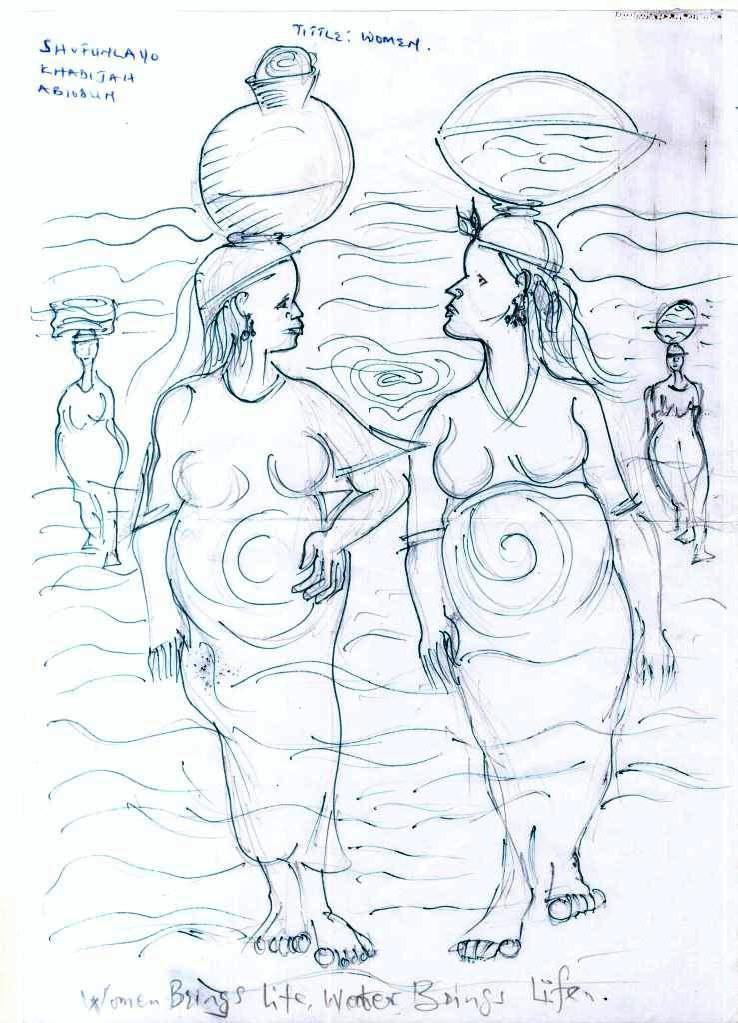
Shofunlayo Khadijah Abiodun
Category: Children
10 Years
THE FIRST TENDERFOOT SCHOOLS (NURSERY AND PRIMARY),
IKORODU, LAGOS
Nigeria
 |
The woman and the ocean |
 |
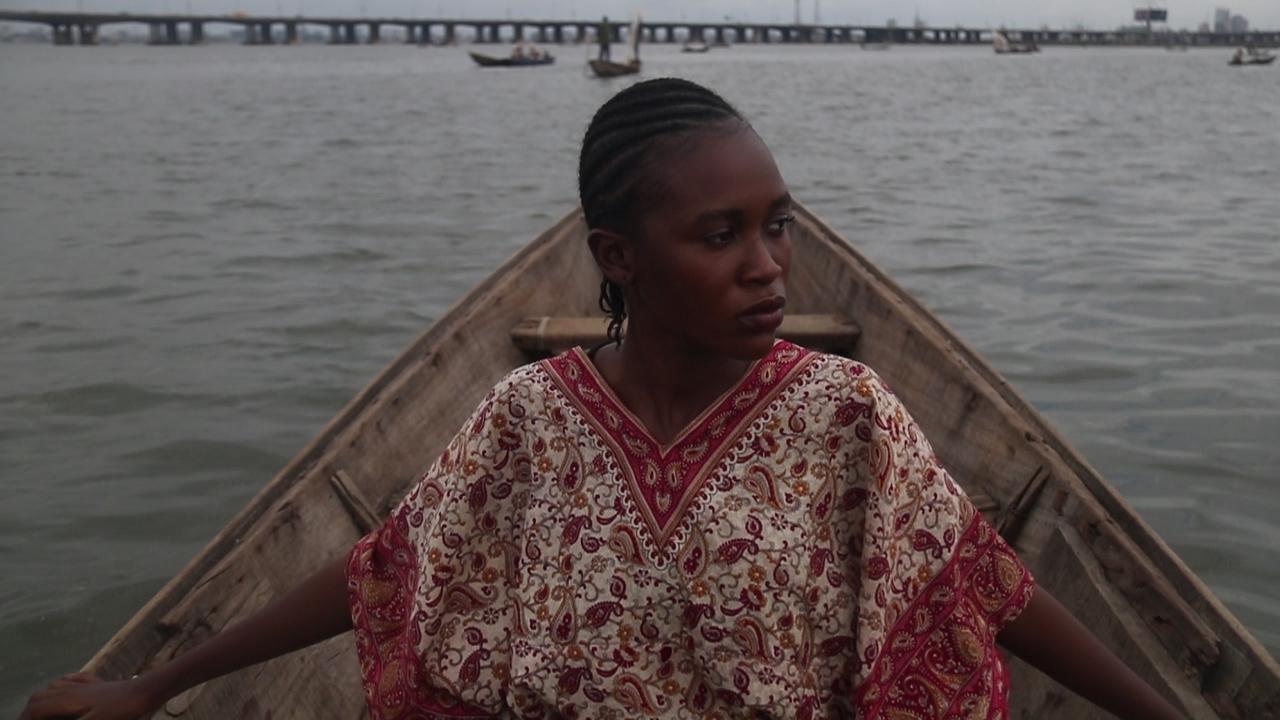
When I was little, I watched as she tossed her fishing net into the ocean with all of her strength. Barefooted, mama would walk in the sand, her hair braided she would wear a smile.
She was as attractive as a goddess. She was an idol that never was worshipped enough, the mini god that never rested. She embraced the ocean just like every other woman; she took the pains and gains but concealed them whenever she saw my face. Sometimes the ocean could betray a woman by not bringing enough fish, yet she goes back because we needed to survive. While some days, we smile, laugh and feel excited because we have more than enough. By the ocean, mama stood to say to me…
When I die, pour the ocean sand over my face that way the ocean would be my face and the very place I longed to be: Home!!!
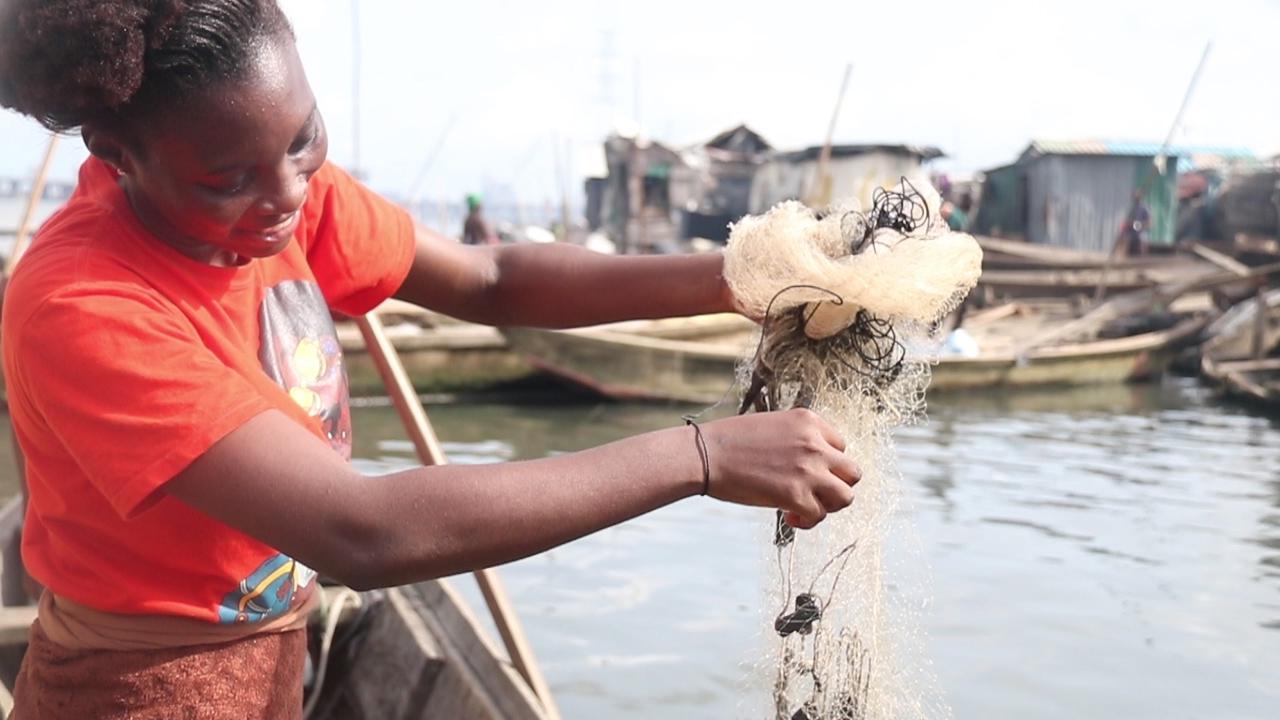
A woman!
Beautiful among all creations
She is like the calm waters and the stormy seas
Her power is like the strong waves of the ocean
A deep sea heart
Powerful beyond words that man can say
Formed from the finest bones
As strong as the rib pulled from the side of man
Made with the power of her own
A strength from within, hidden from sight of man.
Mother of all creatures
The mother nature
The mother of all nations
She is like the depth of the ocean
The width of life
The first to greet the sun
The heartbeat of the earth
She flows in the delight of power and never does she hide her depths
She is a power in motion, cut across the history of life
She is sweet, soft and swift
Wealth of life can be fetched from between her lips
Her hips wriggle to the whispering songs of the winds, which is to the nerve of man a lotion.
Her existence is the essence of our world
Indeed the image of our God
She has nothing to earn, yet her love she never refuses to lend
She is as calm as the ocean in its tides, as fine as the sands and as pure as the ocean's cool breeze along the sea shore
No matter how the world goes from her, they would always come back to draw peace from her
For her body is like the ocean always full of life
She is the ocean
I am the ocean.
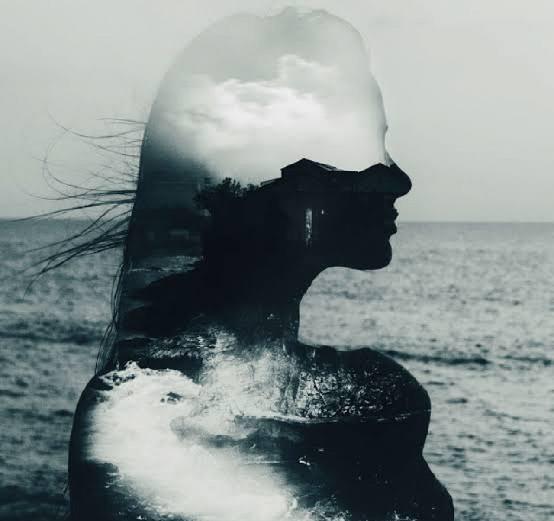
Photo source: Md Reda
I am a woman!
I am beautiful, I am smart, I am pure, I am caring, yet so ambitious.
I am not tired of fighting because I am strong-willed
In me are nations… varieties.
Sometimes there are wars, sometimes unity, sometimes confusion, sometimes certainties.
Despite the different waves of emotions, I find my way through it all.
I stand firm, I stand strong regardless.
See! Look at me! Adorned with such beauty, such wealth, such regalia…
I have always been so caring, peaceful, and have good ambience
But! I don’t like what I have been through!
I have been bruised, mocked, scorned, disappointed, and I am even failing to provide the adequate services to humanity.
I don’t like what I have been through!
For tons and tons of plastic are being thrown at me each year.
With pollution on every side from human anthropogenic activities.
I don’t like what I am going through!
With incessant fishing, they use destructive equipment that waste living creatures that I protect, they damage my coral reef despite the fact that I provide the resources they need.
I don’t like what I am going through!
I am troubled on every side, yet not distressed, perplexed but not in despair, cast down but still, I remain indestructible.
I have been, and still I am going through all these turbulence, depression, disturbances and pressures… you name it, yet nothing changes me.
I am blessed with all the treasures of the earth; adorned with such beauty, such wealth, such regalia… can you recall?
It doesn’t matter how you see me, no! it doesn’t matter at all, because I remain unchanging. I will always be me. I will always be around till the end.
Beat against me, throw things at me, and pounce on me. Whatever you do, I will still be standing! Because I have been built, fashioned and carefully crafted for tough times such as this!
I am a woman! I am the ocean! And I remain unchanging despite all odds.
These are my cogitations.
Afolabi Adetoun Adebunmi (Teacher). Age: 38
Adeyemi Adesumbo Elizabeth (Student), Age:22
Tinuoye Oluwafunsho Olawale (Student), Age:24
Abiodun Kikelomo Omolola (Student), Age:25
Onuh Chidinma Sophea (Student), Age: 25
Category: Intergeneration
Yaba College of Technology, Lagos
Nigeria.
 |
THE BRAVE WIDOW |
 |
Omisoore village is an small settlement that has a large body of water that serves a lot of purposes e.g. as source of food, income and entertainment ground etc. This is why the village was named Omisoore (water does good). There lived a poor widow in the village named Omisewa. Her husband died years back of drowning while carrying out his daily business of fishing and she was left with two children.
Omisewa is a beautiful woman who is also a skilled fisher along her late husband. Dayo and Kemisola, Omisewa's children help her in her fishing business.
The family solely depends on the water body for a living, i.e. as a source of income. She inherited her passion for fishing from her late parents and husband. She catches fish and bring home for smoking while her two children hawk the processed fish after school.
One day, she went to the water to catch fish but the thought of money and the ambition to sponsor her children's education took grip of her heart. She said in her thought, "do I accept the offer of Mr. Arowolo to be his 4th wife? at least he promised to take care of my chidren's education". But she screamed out, No!!! I will remain diligent in my work and hope for God's blessing. At the end of the day, she caught a huge fish with the help of a woman unknown to her. The woman warned Omisewa not to sell the fish
but wait for the wonder of the fish. She thought about this and then decided to keep to keep the fish in her house waiting for the wonder.
The next day, she was tired waiting as the dead fish was becoming rotten. She tried to cut the fish with a knife, but it was as strong as a rock. Then she tried opening the fish through the mouth and the wonder was revealed to her. She found a huge sum of money in the fish's mouth. Omisewa then perceived that the woman she met was not a natural being. This marked the beginning of the poor widow's family rise as her business continued to flourish.
Five years later, Dayo the eldest child got admission into the university to study Marine Science. There he learnt about the Baduka fishing festival. During the festival, skilled fishers engage in fishing with the contest. Dayo remembered what happened to his family five years ago. Without uch hesitation, he registered his mother for the competition.
To cut the long story short, Mrs Omisewa won the contest. Being the first female winner, she was asked to make a request after the prize money was awarded to her. She quickly requested for funding of her children's education. The organisers miraculously granted scholarship for the two children up to Doctorate degree level.
Mrs Omisewa from her life story became a mentor to so many mothers. Her greatest quote is that "Odo to ba gbagbe orisun re yoo gbe" which means a river that forgets its source will dry up. This is why she still practises fishing till date.
What a brave woman!!!
Popoola Kemisola Elizabeth
Category : Children
14 Years
Government Senior Secondary School, Bwari, Abuja
Nigeria







